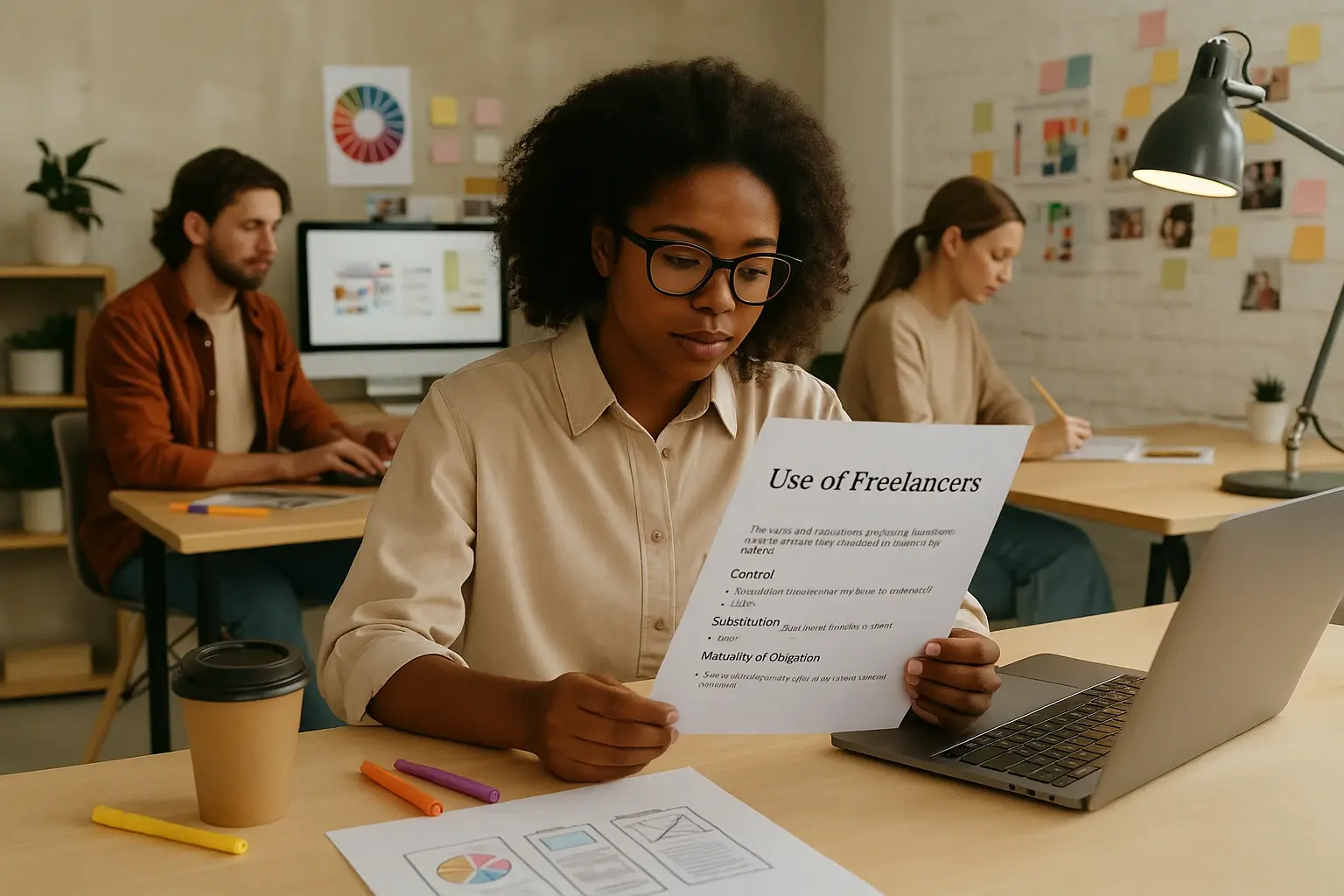The creative industry thrives on collaboration, and freelancers are often the secret sauce that brings a project to life. Whether you're hiring a videographer for a one-off shoot, a graphic designer for a brand refresh or a copywriter for your next big campaign, using freelance talent gives you flexibility and access to specialist skills.
But when it comes to tax and compliance, it’s not always as simple as "they invoice me, so they must be a freelancer." HMRC may see things differently, and if they decide someone is really an employee (not self-employed), it can trigger unexpected tax, National Insurance and even penalties.
Here’s what creative business owners need to know.
What does HMRC look at?
HMRC doesn’t just take your word for it. Even if someone calls themselves a freelancer, the working relationship is what counts. HMRC uses a set of key tests to decide whether someone is genuinely self-employed or should be treated as an employee for tax purposes.
1. Control
Do you tell the freelancer how, when, and where to work? Employees are typically under the control of the employer, while freelancers decide how to get the job done.
✅ Freelancer: You ask for a completed video by Friday, but they decide how and when to shoot and edit it.
❌ Employee-like: You tell them what hours to work, what software to use and require approval before making any edits.
2. Substitution
Can the freelancer send someone else to do the work? Genuine freelancers can often subcontract the work or bring in help. Employees can’t.
✅ Freelancer: They can bring in an assistant editor if needed.
❌ Employee-like: You expect that specific person to do all the work themselves.
3. Mutuality of Obligation
Are you obliged to offer work, and are they obliged to accept it? Employees usually have ongoing obligations; freelancers can pick and choose projects.
✅ Freelancer: You hire them for a one-off project and there's no expectation of future work.
❌ Employee-like: You use them regularly, and they’re expected to be available whenever you need them.
What are the risks of getting it wrong?
If HMRC finds that a freelancer is actually an employee, they can require you to:
- Pay unpaid Income Tax and National Insurance
- Cover employer’s NICs going back several years
- Possibly face penalties and interest on top
And that’s just the tax side. The freelancer might also be entitled to employment rights like:
- Holiday pay
- Statutory sick pay
- Pension contributions
- Protection against unfair dismissal
What about IR35?
IR35 rules affect freelancers who work through their own limited company (often called a Personal Service Company or PSC). If the freelancer would be an employee if you hired them directly, then IR35 might apply.
If you're a small company (meeting 2 out of 3 conditions: turnover under £15m, balance sheet under £7.5m, fewer than 50 employees), then IR35 is the freelancer’s responsibility to assess.
If you're a medium or large company, then you must determine the freelancer’s IR35 status and potentially deduct tax and NIC at source.
Best practices for creative businesses
- Have a proper contract: Use clear terms that reflect a freelance relationship, including substitution rights and project-based engagement.
- Avoid treating freelancers like staff: Don’t give them a company email, include them on the rota, or expect regular availability.
- Keep it project-based: Time-limited, outcome-focused engagements are less risky than ongoing, open-ended ones.
- Use CEST if unsure: HMRC’s Check Employment Status for Tax (CEST) tool can help, though it’s not fool proof:
👉 https://www.gov.uk/guidance/check-employment-status-for-tax
Final thought
Freelancers are a vital part of the creative world but misclassifying them can land your business in hot water. The good news? With clear agreements and a bit of care around how the working relationship is managed, you can enjoy the flexibility freelancers bring without triggering a tax headache.
Need help reviewing your freelancer arrangements or contracts? I’m always happy to help creative businesses stay compliant and flexible.
Need help?
Why not book a meeting with us to discuss your circumstances and see how we can help.
Found that content useful?
Why not sign up for more good stuff!!


